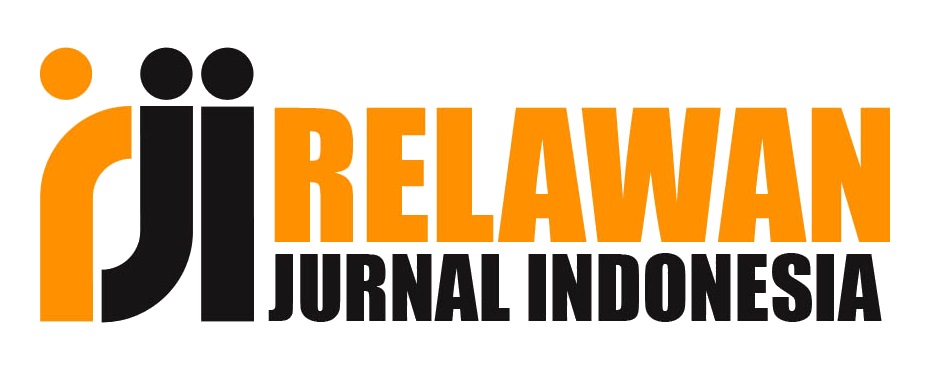Problems with Competence and Leadership Skills of Principals at the Junior High School Level: A Systematic Literature Reviewwords
DOI:
https://doi.org/10.63324/jeit.1.2.2025.94Keywords:
Educational Leadership, Junior High School, Leadership Skills, Principal CompetencyAbstract
This study aims to map the development of research and scientific publications on the competencies and leadership skills of school principals at the junior high school (SMP) level. This study uses a Systematic Literature Review (SLR) approach to analyze 103 scientific articles identified through the PRISMA procedure. The articles analyzed were sourced from the Scopus database and published between 2013 and 2024. Data analysis was conducted using bibliometric tools VOSviewer and CiteSpace to identify topic trends, thematic clusters, and scientific contributions in this field. The results of the study revealed four main thematic clusters in the study of principal leadership in junior high schools, namely instructional leadership practices, community involvement and cultural values, knowledge and policy interventions, and assessment and evaluation. The leadership practices cluster was the most dominant theme, reflecting the importance of the principal's role in improving the quality of learning and institutional management. This research contributes to the development of evidence-based and multidisciplinary educational leadership studies and provides a conceptual basis for formulating more contextual and adaptive school principal development policies in response to global challenges. A limitation of this study is the use of data from a single database, Scopus, which does not fully reflect the entire available literature landscape. Therefore, further research is recommended to utilize additional references from reputable databases such as Web of Science and EBSCO.
References
A, S., & Sindhu, D. (2021). Knowledge Management Skills For 21st Century Library Professionals In India: A Study. Library Philosophy and Practice, 2021.
Chu, T., Pham, T. T. T., Nguyen, T. V. H., Nguyen, C. T., Vu, T. H. N., Nguyen, T. B., & Nguyen, T. M. H. (2024). Authentic assessment designs and students’ self-perception of leadership in business education in Vietnam. Journal of Applied Research in Higher Education. https://doi.org/10.1108/JARHE-02-2024-0060
Hastomo, T., Sari, A. S., Widiati, U., Ivone, F. M., Zen, E. L., & Kholid, M. F. N. (2025). Does student engagement with chatbots enhance English proficiency? ELOPE – English Language Overseas Perspectives and Enquiries, 22(1), 93-109. https://doi.org/10.4312/elope.22.1.93-109
Hastomo, T., Sari, A. S., Widiati, U., Ivone, F. M., Zen, E. L., & Andianto. (2025). Exploring EFL teachers’ strategies in employing AI chatbots in writing instruction to enhance student engagement. World Journal of English Language, 15(6), 93-110. https://doi.org/10.5430/wjel.v15n6p93
Kaminskienė, L., Žydžiūnaitė, V., & Juozaitienė, R. (2021). RELATIONSHIP BETWEEN FACTORS OF TEACHERS’ LEADERSHIP: POSITIVE ATTITUDES, PROFESSIONAL ACTIVENESS, AND STRESS AT SCHOOL. Management (Croatia), 26(2), 197–210. https://doi.org/10.30924/mjcmi.26.2.11
Khan, K. S., Bueno Cavanillas, A., & Zamora, J. (2022). Systematic reviews in five steps: I. Framing questions to obtain valid answers. Semergen, 48(5), 356–361. https://doi.org/10.1016/j.semerg.2021.12.005
Kouhsari, M., Navehebrahim, A., Zeinabadi, H., & Abbasian, H. (2022). Exploring positive school leadership practices in Iranian primary schools. International Journal of Leadership in Education. https://doi.org/10.1080/13603124.2022.2052759
Leksy, K., Gawron, G., Rosário, R., Sormunen, M., Velasco, V., Sandmeier, A., Simovska, V., Wojtasik, T., & Dadaczynski, K. (2023). The importance of school leaders in school health promotion. A European call for systematic integration of health in professional development. Frontiers in Public Health, 11. https://doi.org/10.3389/fpubh.2023.1297970
Lubguban, M. G. B. (2020). Leadership proficiency and emotional competence of women school administrators. Journal of Critical Reviews, 7(11), 293–296. https://doi.org/10.31838/jcr.07.11.47
Mahfouz, J., & Karami, R. (2023). Principalship in Lebanon: The unsung heroes. In Demystifying Educational Leadership and Administration in the Middle East and North Africa: Challenges and Prospects (pp. 140–153). Taylor and Francis. https://doi.org/10.4324/9781003334835-8
Mancin, S., Sguanci, M., Andreoli, D., Soekeland, F., Anastasi, G., Piredda, M., & De Marinis, M. G. (2024). Systematic review of clinical practice guidelines and systematic reviews: A method for conducting comprehensive analysis. MethodsX, 12. https://doi.org/10.1016/j.mex.2023.102532
Marcos-Pablos, S., & García-Peñalvo, F. J. (2018). Decision support tools for SLR search string construction. In G.-P. F.J. & R. I. for E. S. (IUCE) University of Salamanca Department of Computer Science and Automatics, Plaza de los Ca�dos s/n, Salamanca (Eds.), ACM International Conference Proceeding Series (pp. 660–667). Association for Computing Machinery. https://doi.org/10.1145/3284179.3284292
Mestry, R., & Govindasamy, V. (2021). The Perceptions of School Management Teams and Teachers of the Principal’s Instructional Leadership Role in Managing Curriculum Changes. Interchange, 52(4), 545–560. https://doi.org/10.1007/s10780-021-09425-5
Ralebese, M. D., Jita, L. C., & Chimbi, G. T. (2022). “Underprepared” Principals Leading Curriculum Reform in Lesotho. Research in Educational Administration and Leadership, 7(4), 861–897. https://doi.org/10.30828/real.1104537
Rethlefsen, M. L., Kirtley, S., Waffenschmidt, S., Ayala, A. P., Moher, D., Page, M. J., Koffel, J. B., Blunt, H., Brigham, T., Chang, S., Clark, J., Conway, A., Couban, R., de Kock, S., Farrah, K., Fehrmann, P., Foster, M., Fowler, S. A., Glanville, J., … Young, S. (2021). PRISMA-S: an extension to the PRISMA Statement for Reporting Literature Searches in Systematic Reviews. Systematic Reviews, 10(1), 1–19. https://doi.org/10.1186/s13643-020-01542-z
Sadeghi, R., & Treglia, G. (2017). Systematic reviews and meta-analyses of diagnostic studies: a practical guideline. Clinical and Translational Imaging, 5(2), 83–87. https://doi.org/10.1007/s40336-016-0219-2
Sari, A. S., Lipta, & Marlinda, S. (2024). Enhancing students’ reading comprehension through reciprocal questioning. LinguaEducare: Journal of English and Linguistic Studies, 2(1), 107-116.
Sari, A. S., Fadilaturrahmah, F., Kalsum, U., Yuliana, Y., Juliansa, P. R., Putra, Y. S., & Tansilo, H. (2022). Pelatihan pembuatan video sebagai media pembelajaran menggunakan Kinemaster. Media Abdimas, 1(3), 41-45. https://doi.org/10.37817/mediaabdimas.v1i3
Seng, S. (2025). Review of the Professional Standards for School Principals in Cambodia: Functions and Content Analysis. Research in Educational Administration and Leadership, 10(1), 1–40. https://doi.org/10.30828/real.1578811
Strand, M. K., & Emstad, A. B. (2020). Developing leadership by participating in principal professional learning communities (PPLCS) and the added value of transnational collaboration. Research in Educational Administration and Leadership, 5(2), 485–513. https://doi.org/10.30828/real/2020.2.6
Turk, N. (2021). Methodology of systematic reviews. Zdravniski Vestnik, 90(7–8), 432–442. https://doi.org/10.6016/ZdravVestn.3138
Yaphe, H., Wallace, D., Rank, M. A., & Lang, E. (2021). Systematic Review and Meta-Analysis: Pearls for Interpretation, Appraisal, and Application in Clinical Practice. Journal of Allergy and Clinical Immunology: In Practice, 9(12), 4209–4220. https://doi.org/10.1016/j.jaip.2021.08.009











